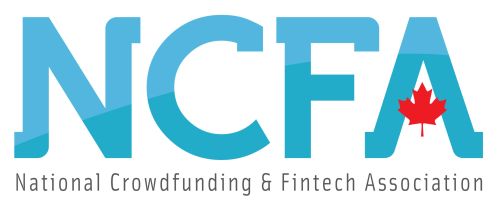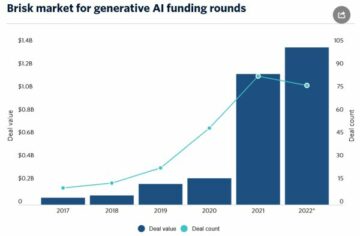Practical Tips to Improve Decision-Making and Avoid FOMO/FOBO
Forbes | | Dec 28, 2022

Image: Unsplash/Jasmin Sessler
How gaining a better understanding of FOMO vs FOBO concepts can make decision making easier for all
- He defines FOMO (the fear of missing out) as an anxiety provoked by the fear that there is something better happening than what we’re doing at the moment. It can also be understood as a fear of being excluded from the group.
- We can end up making our decisions based on false data. Social media, and the tendency to compare our lives and set goals based on others’ seemingly perfect situations
- “Perception can be deception,” he shared. “This can cloud your decision-making and you can ultimately end up living somebody else’s dream and not your own.”
- FOBO (fear of a better option), on the other hand, comes into play when we are attempting to make a choice between acceptable options. Out of a desire to choose the best, we wait until the perfect deal or opportunity comes up. Rather than valuing choice, we focus on option value, and this can lead to decision-paralysis.
- With FOBO, the impacts can be even worse. First, there is no such thing as a perfect decision. Second, due to information asymmetry, it will always be impossible to know what choice will be the best.
- With FOBO, he encourages decision-makers to list out all of the options and then slowly begin to let go of the ones that you know won’t work.
See: Fully automated decision making AI systems: the right to human intervention and other safeguards
- Simplifying decision making: “When it comes to low stakes and no stakes decisions, we must outsource them,”
- low stakes - decisions are those you won’t remember having in a month (purchasing a new outfit)
- high stakes - decisions are those that will have long-term implications on your life, health, family, etc (get married, quitting a job)
- To overcome FOMO, he encouraged listeners to always do their homework, ensuring that a well-informed decision is being made
- no stakes - decisions are those you won’t remember having in a few days (what to eat for breakfast, what color socks to wear, etc).
Another perspective
There are many tools and techniques that can help improve decision making. Some of the most effective ones include:
- Identifying the decision to be made: Clearly define the problem or opportunity that you are facing.
- Gathering information: Collect as much relevant information as possible to help inform your decision.
- Weighing the pros and cons: Consider the potential benefits and drawbacks of each potential course of action.
- Seeking input from others: Talk to colleagues, mentors, or other trusted advisors to get their perspective on the situation.
- Using decision-making models: There are various decision-making models, such as the decision tree, the six thinking hats, and the SWOT analysis, that can help you systematically evaluate options and choose the best one.
See: Sequoi’s Shaun Maguire on decentralization and crypto venture conviction
- Testing assumptions: Make sure to challenge your assumptions and consider alternative viewpoints.
- Evaluating risks: Consider the potential risks and uncertainties associated with each option, and try to mitigate them as much as possible.
- Making a decision: After considering all of the above factors, make a decision and take action.
- Reviewing and learning from the decision: After implementing the decision, review the outcomes and learn from the experience to inform future decision making.
Continue to the full article --> here
 The National Crowdfunding & Fintech Association (NCFA Canada) is a financial innovation ecosystem that provides education, market intelligence, industry stewardship, networking and funding opportunities and services to thousands of community members and works closely with industry, government, partners and affiliates to create a vibrant and innovative fintech and funding industry in Canada. Decentralized and distributed, NCFA is engaged with global stakeholders and helps incubate projects and investment in fintech, alternative finance, crowdfunding, peer-to-peer finance, payments, digital assets and tokens, blockchain, cryptocurrency, regtech, and insurtech sectors. Join Canada's Fintech & Funding Community today FREE! Or become a contributing member and get perks. For more information, please visit: www.ncfacanada.org
The National Crowdfunding & Fintech Association (NCFA Canada) is a financial innovation ecosystem that provides education, market intelligence, industry stewardship, networking and funding opportunities and services to thousands of community members and works closely with industry, government, partners and affiliates to create a vibrant and innovative fintech and funding industry in Canada. Decentralized and distributed, NCFA is engaged with global stakeholders and helps incubate projects and investment in fintech, alternative finance, crowdfunding, peer-to-peer finance, payments, digital assets and tokens, blockchain, cryptocurrency, regtech, and insurtech sectors. Join Canada's Fintech & Funding Community today FREE! Or become a contributing member and get perks. For more information, please visit: www.ncfacanada.org
Related Posts
- SEO Powered Content & PR Distribution. Get Amplified Today.
- Platoblockchain. Web3 Metaverse Intelligence. Knowledge Amplified. Access Here.
- Source: https://ncfacanada.org/practical-tips-to-improve-decision-making-and-avoid-fomo-fobo/
- 2018
- 28
- 7
- a
- above
- acceptable
- Action
- advisors
- affiliates
- After
- AI
- All
- alternative
- always
- analysis
- and
- Anxiety
- article
- Assets
- associated
- attempting
- Automated
- based
- become
- being
- benefits
- BEST
- Better
- between
- blockchain
- Breakfast
- cache
- Canada
- capital
- Category
- challenge
- choice
- Choose
- clearly
- closely
- Cloud
- colleagues
- collect
- color
- community
- compare
- competition
- concepts
- Cons
- Consider
- considering
- conviction
- course
- create
- Crowdfunding
- crypto
- cryptocurrency
- Dark
- data
- Days
- deal
- Decentralization
- decentralized
- decision
- Decision Making
- decision tree
- decision-makers
- decisions
- Defines
- digital
- Digital Assets
- distributed
- doing
- drawbacks
- dream
- each
- easier
- eat
- ecosystem
- Education
- Effective
- Else’s
- encouraged
- encourages
- engaged
- ensuring
- entry
- etc
- Ether (ETH)
- evaluate
- Even
- excluded
- experience
- facing
- factors
- family
- fear
- few
- finance
- financial
- fintech
- First
- Focus
- FOMO
- Forbes
- from
- full
- fully
- funding
- future
- gaining
- get
- Global
- Go
- Goals
- Government
- Group
- having
- Health
- help
- helps
- HTTPS
- human
- Impacts
- implementing
- implications
- impossible
- improve
- in
- include
- industry
- information
- Innovation
- innovative
- input
- Insurtech
- Intelligence
- intervention
- investment
- IT
- Jan
- Job
- Know
- lead
- LEARN
- Life
- light
- Lives
- living
- long-term
- Low
- made
- make
- Making
- many
- Market
- max-width
- Media
- member
- Members
- missing
- Mitigate
- models
- Month
- more
- most
- networking
- New
- ONE
- opportunities
- Opportunity
- Option
- Options
- Other
- Others
- outsource
- Overcome
- own
- partners
- payments
- peer to peer
- perfect
- perks
- perspective
- plato
- Plato Data Intelligence
- PlatoData
- Play
- please
- possible
- potential
- Practical
- Problem
- productivity
- projects
- PROS
- provides
- purchasing
- Regtech
- relevant
- remember
- review
- risks
- Second
- Sectors
- Services
- set
- shared
- situation
- SIX
- Slowly
- small
- Social
- social media
- some
- something
- stakeholders
- start-ups
- Stewardship
- such
- Systems
- TAG
- Take
- Talk
- techniques
- The
- their
- thing
- Thinking
- thousands
- tips
- Title
- to
- today
- Tokens
- tools
- trusted
- Ultimately
- uncertainties
- understanding
- understood
- Unsplash
- value
- valuing
- various
- venture
- vibrant
- wait
- What
- will
- works
- Your
- zephyrnet












